Text

JRR #3: November 10, 2023
I successfully revamped my entire resources page, but I made the mistake of copying the code with all links and new order and... not pasting it. (: This was a month ago and I still haven't found the energy to do it all over again (not to mention that the entirety of October was a literal nightmare), so for now I'll just stick to sharing some resources...
・Migaku & Migaku's Pitch Trainer: A handful of people love Migaku in a Discord server I'm in, but I don't have the patience to figure the whole thing out (a browser extention similar to Language Reactor but better, and you may need to sub to the higher tier to use it with places like Netflix... which I did not, and I paid annual). Anyhow, I specifically skipped the free trial so I could use the subscriber-only pitch trainer feature. Other than Dogen's course, I haven't come across too many decent resources specific to pitch accent, so I'm giving this a month or two and may review it later. So what's this like? You have an area where you learn to recognize individual pitches, eventually progressing to multi-pitch words and then phrases. There's also a separate area for training where you can parse your level and improvement. When streaming videos, you also have an option to color-code words based on their pitch.
・Yomu Yomu: Du Chinese's Japanese spin-off! For those who don't know, Du Chinese is a graded-reader app, but I've loved using it so much that I wished there was a Japanese version of it (excluding Satori). They recently launched and it appears to be free for the time being, although stories are limited – some of which are just the Japanese versions of what's on Du Chinese, but I know they will be adding new content in due time. I'm also hoping they'll work on making the audio more expressive, but I do appreciate how they've broken up the beginner level into three sections before jumping into elementary – you can really see the difference in The Diary of a Cat (beginner I) vs. Reincarnated Rick (beginner III).
・Nihongo no Mori (日本語の森): For tackling JLPT N3 - N1 in Japanese, but the books are now a separate purchase (Tofugu review here) in addition to the monthly/annual website subscription. I've heard the N3 course is doable without the book, but I can't verify this myself (I did order the N3 book, so...). I've been subbed for almost a year and finally getting around to using it – I love the videos! They're full of little quizzes, include jp cc, and if you're at the appropriate level you should be able to understand the gist if not completely (depending on your listening/reading comprehension).
・Speak Japanese Naturally (Phonetics Course): Fumi runs a Youtube channel mainly focused on listening and speaking with some videos specific to pitch, pronunciation, and shadowing, but she also launched her own phonetics course this year! There's a video that covers the details here, and there are currently two pricing plans: $15 USD/month or $5 USD/month. The latter includes everything the more expensive plan does but exists for those who can't afford the higher cost. This is also another resource I'm paying for, so I might give this one a review later on.
#mango's jrr#japanese langblr#japanese studyblr#jpn resources#langblr#nihongo no mori#speak japanese naturally#migaku#pitch trainer#yomu yomu#jlpt#pitch accent
1 note
·
View note
Text
≛ Vocab | Feb 5 - Feb 13 ≛

高層・こうそう・high-rise (building)
いたずら電話 ・いたずらでんわ・prank call
勧誘・かんゆう・solicitation
神経質・しんけいしつ・highly strung
差し込もう・さしこもう・to insert; put in; thrust in; plug in
玉砕(する)・ぎょくさい・complete rejection when professing one’s love
片想い・かたおもい・unrequited love
両想い・りょうおもい・mutual love
両片想い・りょうかたおもい・a mashup between 片想い and 両思い that means a feeling is mutual but thought to be unrequited
-ごっこ・playing at (something); game of make-believe; something done together
Bonus:
交換日記・こうかんにっき・exchange diary ☆
(first time I’ve even heard of this!)
#japanese studyblr#japanese langblr#vocab list#langblr#studyblr#単語#japanese vocabulary#mine: vocab list
46 notes
·
View notes
Photo
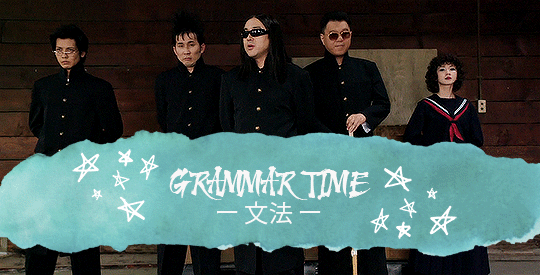
Nothing consistent about this, but I thought I might start sharing some of the unfamiliar grammar points I come across -- if it helps anyone, cool! But I’m also hoping it’ll help cement the grammar a little more firmly into my own memory. There might be a few different uses of individual grammar points I note down, but the meanings I share are ones based on the context I find them in. I’m also perpetually learning, so I’ll be up front about anything I’m uncertain about and always welcome corrections. ♡
真相に追るたび、二人の大切な仲間たちが生命の危機にさらされていく。(x - synopsis from the 2023 film with Sakurai Sho and Hirose Suzu who play detectives Kazama Naoki and Mikami Anna respectively)
・たびに or たび
Meaning: each time〜; every time〜; whenever〜 | Bunpro ☆ Maggie
In this case, there is no に -- and most places show examples using the full adverbial form only, so I wasn’t sure if this interpretation was correct until I read Maggie Sensei’s post (thank you). She says に is sometimes dropped in formal writing and speech, but the meaning stays the same, which is: every time/whenever I do (A), (B) happens.
So in my example sentence, 真相に追るたび is saying whenever (Naoki and Anna) pursue the truth... 二人の大切な仲間たちが生命の危機にさらされていく happens. (Which I am interpreting as: (Whenever Anna and Naoki pursue the truth...) the lives of close friends are put at risk.)
京都を舞台に、イケメンだけど何をするにもワンテンポ早いハジメと、ワンテンポ遅くて周囲のペースから微妙にズレてしまうレイカが、消えた1日をめぐって不器用な恋を繰り広げる。(x)
・をめぐって
Meaning: concerning〜; in regard to〜; about〜 | JLPT Sensei ☆ Takoboto ☆ Imabi
Imabi provides some extra notes on the usage here -- it’s stiff language, and it can sometimes be used in a more literal sense (of passing through or around places), but it more often refers to ‘surrounding’ something that is often translated as “concerning〜”. “In a sense you are surrounding something in an interest and describing it.”
To brutishly translate “消えた1日をめぐって不器用な恋を繰り広げる,” I’ll say a clumsy or awkward romance develops in regards to or concerning a lost day... But to be a little liberal: Set in Kyoto, 1 Byou Saki no Kare tells the story of an awkward romance between the attractive, fast-paced Hajime and Reika, the little sloth that could, when (the memory of) an entire day goes missing.
It’s difficult for me to understand this in a ‘surrounding with interest’ concept, but...
・・・私、頑張っているよね ʅ(ツ)ʃ
映画制作にまつわる人々の奮闘、脚本のもとになった取材先での感動秘話などがフィクションと“湯ーモア”たっぷりに描かれる。(x)
・にまつわる
Meaning: related/relating to, associated with, connected to | Bunpro ☆ JLPT Sensei ☆ Nani Blog
The にまつわる grammar point is sandwiched between two nouns (so AにまつわるB), to say B is related to A. In this case, noun A = 映画制作 (film production) and noun B = 人々の奮闘 (everyone’s hard effort), so: 映画制作にまつわる人々の奮闘 = the hard work of everyone involved in the production of this film...
・もとになる
Meaning: become the basis for, become the foundation of (noun phrase) | Kanshudo
Ha ha, well, I don’t like this sentence! As much as I searched, I only found the one explanation with one example, so I did what I normally do: look it up on google or twitter for in-the-wild examples. It’s all good, I get it -- AもとになるB, so B is the foundation of A. But, I don’t understand what 湯ーモア means, I’m not sure how to best understand 取材先 in this context, and I’m confused on how to fit in the first part of the sentence for comprehension. So,
Depicting plenty of fiction and “hot water(??),” stories (like the ones shared?) at interviews became the basis of the script
is my gist! Which might be totally wrong! --Moving on!
#japanese langblr#studyblr#japanese grammar#たびに#たび#をめぐって#にまつわる#もとになる#grammartime!#grammar: gt#mangogrammar
5 notes
·
View notes
Text
Spy x Family Vocabulary | Episode 1 👨👩👧✨

i started watching this anime day before yesterday and am so in love with it!! it totally lives up to its hype and is definitely going to be one of my favourite anime of all time😍🥰
🕵️📝sharing some words I picked up from Ep. 1:
1. 大使館 【たいしかん】 → embassy
2. おそらく → perhaps, likely, probably
3. 外交官 【がいこうかん】 → diplomat
4. 戦争 【せんそう】→ war
5. 職業 【しょくぎょう】→ occupation
6. 養う 【やしなう】→ to adopt (a child)
7. 黄昏 【たそがれ】→ twilight [🕵️]
8. 冒険 【ぼうけん】→ adventure, venture
9. ワクワク → thrilled, getting excited (onomatopoeia)
10. 秘密 【ひみつ】→ secret
_________________________________________
(that's all I had noted - would keep adding more vocab as i keep watching if it helps! (◍•ᴗ•◍))
208 notes
·
View notes
Text
Kuchisabishii
(口寂しい)
When you're not hungry, but you eat because your mouth is lonely.
137 notes
·
View notes
Text
Recommendation: Apps for Japanese Learning

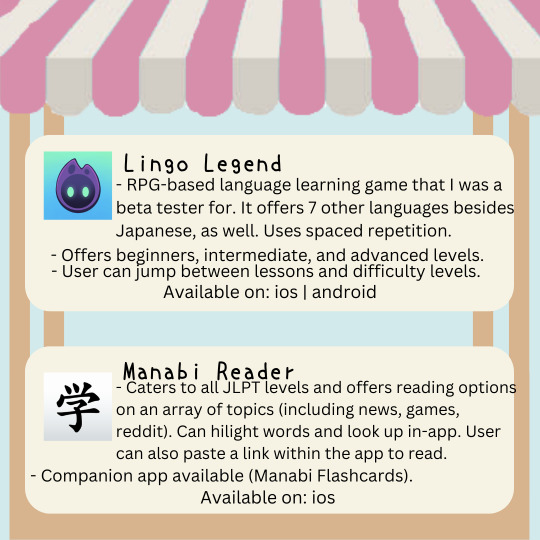
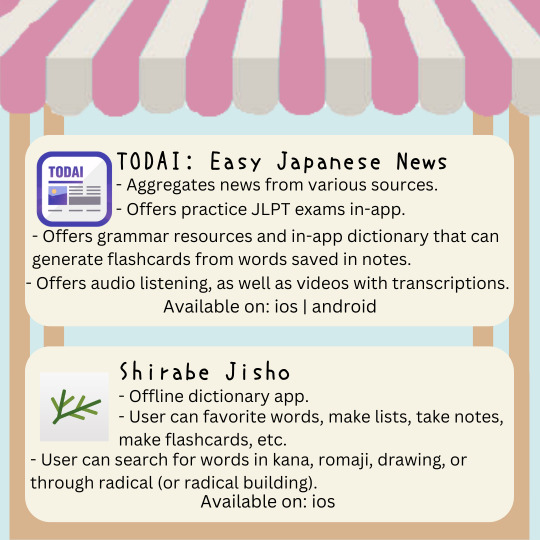

Over the years, I've downloaded and tester many apps. Though my favorite app was discontinued (I miss you, mindsnacks Japanese), there are still others that I don't think I'll be removing from my phone any time soon. In light of duolingo's horrible update causing a large migration and search for other apps, I thought I'd share some of my favorites. Also, some of these apps have websites or discords for you to interact with other users or to ask support questions.
For those who cannot use/don't like the graphics, the written out version is below the break.
Lingo Legend
RPG-based language learning game that I was a beta tester for. It also offers Spanish, French, Japanese, Korean, Mandarin Chinese, German, Italian, and Portuguese. Uses spaced repetition.
Offers beginners, intermediate, and advanced levels.
User can jump between lessons and difficulty levels.
Available on ios and android
Manabi Reader
Caters to all JLPT levels and offers reading options on an array of topics (including news, games, reddit). Can hilight words and look up in-app. User can also paste a link within the app to read.
Companion app available (Manabi Flashcards).
Available on ios
TODAI: EASY Japanese News
Aggregates news from various sources.
Offers practice JLPT exams in-app.
Offers grammar resources and in-app dictionary that can generate flashcards from words saved in notes.
Offers audio listening, as well as videos with transcriptions.
Available on ios and android. Also has a website.
Shirabe Jisho
Offline dictionary app.
User can favorite words, make lists, take notes, make flashcards, etc.
User can search for words in kana, romaji, drawing, or through radical (or radical building).
Available on ios
Renshuu
Think quizlet, but solely for Japanese. You can create your own lists, use others, play shiritori, earn prizes and interact on forums.
You can study grammar, kanji, vocab, flashcards, learn and submit mnemonics. You can also friend people.
Available on ios and android. Also has a website (of which I am an avid user).
Connect with me: Ko-fi Shop & Tips | Discord | Studygram | Ask Box
↳ psst! my ko-fi shop has learning resources on it. try to check back for new things bc im always working on something to add in there
1K notes
·
View notes
Note
Hello! I’m doing a research project at uni about Japanese self-studiers and kanji. If you are over 18 and self-study Japanese, could you fill out the 10-minute survey that’s on my blog (preferably by this Friday)? ありがとうございます! :)
Sure thing! Just submitted my response. 😊
2 notes
·
View notes
Text
How to write formal Japanese emails・正式な日本語のメールの書き方

The nonprofit I work for recently gave all us interns a really informative talk on the protocol for writing profession emails in Japanese, so I thought I’d share what I learned with you guys! Just so you know, I’ll be using some advanced vocab (including 敬語) in this post and pretty much won’t gloss any kanji. So if you’re feeling up to it, then let’s go! 行きましょう!
Subject line
For some reason our presenter did this one last, but I’m going to put it at the beginning. As in English subject lines, be plain and mention the specific purpose of your email. I have temporarily lost SO many work emails due to inane or repeat subject lines. Include your last name in the subject line if you think it’s necessary. Here’s a sample subject line for an internship application:
インターンシップ申し込み(XX大学・[名字・名前*])
Here’s one for the nonprofit I work for:
【[非営利団体]】トピック3:コロナウイルス(11月9日開始)
Please don’t ask what I do here…it’s semi-ridiculous. (And I don’t even get paid.)
*If you have a Western name where your given name comes before your family name, it’s more up to you which order you put them in and which one you use in general, especially if you don’t know if your Japanese recipient will be able to recognize which is which (or if you’re like me and your last name is nigh unpronounceable in kana). You might want to think about this on a case-by-case basis.
Addressing the recipient
Usually the first thing you do in an English email is greet who you’re talking to. This is the same in Japanese. Here’s a basic template:
株式会社ABC
XX部
[名字・名前]様
First, you name the company* your addressee works for; second, the department; and third, their full name, accompanied by 様(さま), not さん!
*Be careful here: not all companies are 株式会社. Basically, the first line is for their workplace. If you’re a university student like me, you might be emailing someone who works for ABC大学.
Introducing yourself
Next, you should say who you are. The format for this varies on whether you are telling them who you are or reminding them, i.e., if this is your first time emailing them or not. Here’s an introduction template for a university student:
初めてメールをお送りいたします。ABC大学XX学部YY学科*の[名字・名前]と申します。
With a first email, you state that it’s the first email and introduce yourself using 申す to be extra polite. You also state your university (if they don’t work for it already, presumably), your major, and 学科* if necessary. If you’re a double major like me, you can write XX学部 twice in a row.
Here’s a template for a second email:
いつもお世話になっております。ABC大学/XX学部の[名字]です。
Basically, you thank them for talking with you again and briefly reintroduce yourself, depending on if your university or your major is more relevant. No need to use 申す.
*I’ll be honest: I don’t really know what a 学科 is or how it differs from 学部/専攻/専門. Our presenter called it a “sub-major.” No clue what that means. Concentration, maybe? Tread carefully, my friends.
Email body
Just as in English emails, Japanese emails should be simply written and get to the point as immediately as possible. That’s more basic email etiquette than anything—after all, does anyone really want to be reading emails?
You should also use 敬語 in the email body if you can. Pick whether to use 尊敬語 or 謙譲語 and then stick with your choice for the entire email. I gotta say, I have no idea how to decide which one to use! 敬語 is so hard! Do your best!!!
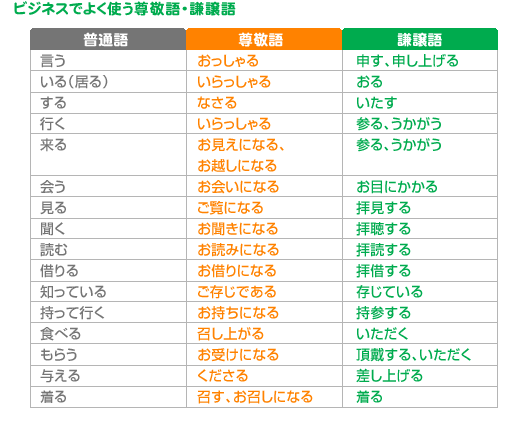
(Also, here’s a 敬語 Quizlet I made a while ago!)
Here are some useful phrases to include in your email body:
XXを添付しておりますので、ご確認お願いいたします。 = I have attached XX for you to check.
ご質問などございましたら、遠慮なくお申し付けください。 = If you have any questions, please do not hesitate to ask.
ご不明な点などございましたら、お気軽にご連絡ください。 = If anything is unclear, please feel free to contact me.
クッション言葉 (cushion phrases)
In classic Japanese fashion, クッション言葉 are phrases used to soften requests, questions, apologies…basically all manner of inconvenience or imposition. These can get pretty long, which seems to go against the general rule of concision in emails, but in Japanese these are very important. Use them in your email body.
Asking for help, making a request:
恐れ入りますが… (note: 入 here is pronounced い)
お手数おかけいたしますが…
ご迷惑おかけいたしますが…
Asking a question:
少々お尋ねしたいことがあります。
Making an apology:
誠に/大変申し訳ございませんが…
There are probably lots more of these to be discovered. Maybe someday a Japanese person will write YOU an embarrassingly polite email!
Closing
Ah, conclusions—the worst part of any piece of writing. Luckily, we have more templates. This is another case where the format varies depending on whether you’ve emailed this person before. Here’s the template for a first email:
お忙しいところ、お手数おかけいたしますが、何卒、よろしくお願い申し上げます。
Probably the most commas I’ve ever seen used in one Japanese sentence. This is all 謙譲語.
Here’s a template for if you’ve emailed them before:
今後とも/引き続きよろしくお願いいたします。
Basically, you have to thank them for their continued support/tolerance of you.
Signature
And here we have just what we did for the addressee at the beginning, but now for you, the sender.
[名字・名前]
ABC大学XX楽部XX学科*
携帯番号:XXX
メール:YYY@
Optionally, you can also link any webpage you might have (like LinkedIn) or include your home, school, or business address. I’m not totally clear on what the protocol is surrounding your cell phone number, since in the US at least I would never give that out in an email signature, but you can probably delete it or easily replace it with a work number.
*Again, substitute your place of work if necessary.
お疲れ様でした!
Yikes, that was a lot of content at once, especially since most of it is just canned phrases to memorize or keep on hand. I hope this will help you guys in all your scary email-writing endeavors!! またこの次までね!
483 notes
·
View notes
Text
happy morning — or evening or night, wherever you are — everyone! we have a new member in the Genki Study Group Discord server who’s currently on lesson four (genki 1) and looking for some study partners! I thought I’d reach out into the void and extend an invite to anyone who’s around the same spot and would be interested!
we also have a couple people planning to move on to genki 2 after the new year, if that interests anyone.
to join, just send me a message and I’ll get back to you with an invite link. ✨
as a heads up: although we still have study guides from previous G1 and G2 groups, I likely won’t be updating these or overseeing anyone work through the textbooks. I am busy being slaughtered by tobira’s workload, but I’m also applying to the nursing program next year and currently working on checking stuff off for that. that said, myself and others are still available for support if needed.
positive studies ✌🏻
23 notes
·
View notes
Text
Sorry, guys. I know I said Sunday or Monday, but things haven’t been working out this week. My mom is not in the best of health right now (not covid-related), and I have more responsibilities and stress than usual. I’m not dropping the challenge or anything, just taking things day by day.
☆(・ω・*)ゞ
For my own sanity and well-being, I have to put the grammar challenge on hold until at least this Sunday or Monday. I don’t think it’s an interest to many, but it’s something that really helps me pause and look back at the older grammar points I haven’t touched in a while (or, tbh, completely forgot about). The last few weeks have been especially difficult, and when I got home last night I almost felt like crying because I am so stressed out. Obviously I need to prioritize and drop a couple things temporarily, so that’s what I’m doing.
I’ll be working on finishing the remainder of Genki’s Lesson 21, review the second half of it this Sunday, and then start a much-needed two-week review period. Things should be a little easier by then, and not just because I won’t be hustling through a lesson. (。□゚ノ)ノ
18 notes
·
View notes
Photo
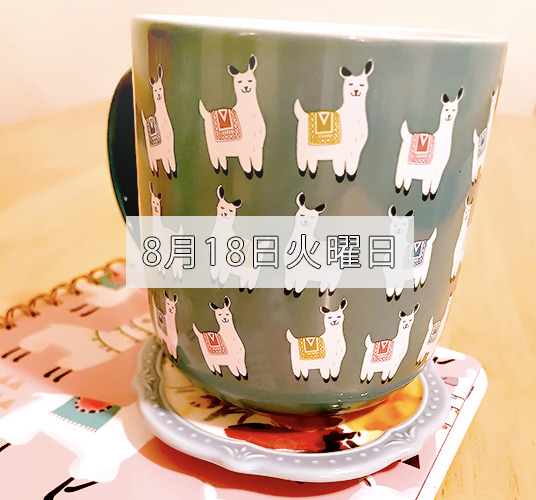
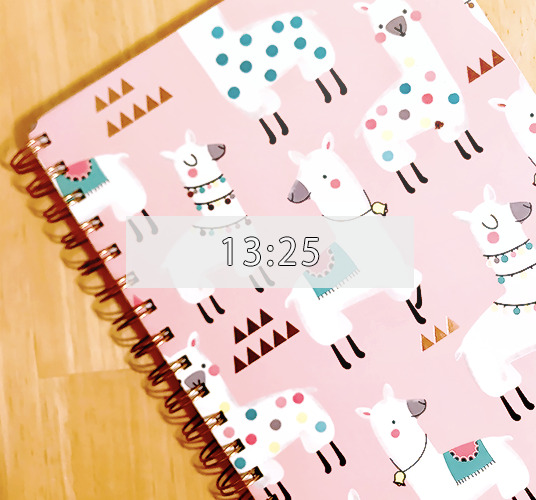
A cup to pair with my notebook✨ Hopefully it will remind and inspire me to write more often in Japanese.
I meant to post yesterday, but a lot of random and crazy things happened that I don’t mind sharing but are also just so [eye roll], and at the end of the day I fell asleep at my desk again. Tuesday, be nice!
So I “finished” Lesson 21 in Genki on Sunday, only not really. The week wasn’t kind and ended with a five-day old headache explosion that could not be quieted, so Thursday evening through all of Friday I was home but rendered useless. I was able to complete the remaining workbook exercises on Saturday, save for about half of the listening comprehension, and a fair amount of vocab! I’m in a review week now, so I’m hoping to cover the remaining practice material and go hard with vocab (because I’ve been seriously slacking on it, and you know how scary a neglected Anki deck can become).
There’s a lot of stuff I need/want to sort through over the next two weeks, although I’m a day behind now. Even as I wrote out my daily goals for this review period, I knew it’d be a struggle, but I’ll see what I can get done. From the top of my list:
Review kanji from 読み書き編
Finish Lesson 21 Anki vocab deck and start reviewing/finishing other lessons, working backward
30 Days of Grammar (days 7 - 11)
Start making grammar point flashcards, starting with lessons 13 - 21, and finishing the week with lessons 1 - 3 or 5 (if applicable; most of that is very basic grammar)
読み書き編+教科書練習 (finish)
Finish 21.8 in the workbook (聞く練習)
Finish ちょっと食べられちゃったパイ君
These are my Japanese goals for the week! I think it’s a lot to work through, especially considering my schedule, but I’ll do what I can.
(And sorry for the picture quality. ;-; It’s something I have to work with now since the front camera developed worse vision than me after my phone flung across the passenger seat and hit the car door. Which, oddly, is the one incident that did the most damage as opposed to the multiple times where I have watched it drop from 4+ feet onto a hard surface floor uncased. I can only hope a repair can fix it.)
12 notes
·
View notes
Note
Wow! Your Tumblr layout is really cool! Haha
thank you! I always thought it was cute ha ha (ノ*゜▽゜*)
I was thinking I might change it soon!
1 note
·
View note
Text
I love it when language textbooks are like:
Here’s the names of all the chapters! Here are the textbook’s main characters; they’re all secretly in love! Here’s how to say hello!
863 notes
·
View notes
Photo

JRR #2: August 1 - August 13, 2020
If you saw this earlier and noticed it was a giant wall of text, that’s because posting drafts from mobile seems to erase all links and other formatting in my posts. Note to self. Anyway: here’s to another set of resources.
Yuki’s Japanese TV: He’s got a variety of video content from JLPT and grammar to vocab but also topics like food and life during a pandemic. What makes his channel extra special in my book (can you guess?) is that he speaks in Japanese. He does have some in English, and others where he speaks both, but as far as grammar—it’s in Japanese (from what I’ve seen). If that sounds intimidating, he hard subs a lot of his sentences (still in Japanese) and supplies graphics to help demonstrate points, so even if you don’t understand all that he says it’s still difficult to feel lost with Yuki.
Automatic Japanese: I am in love with Asari’s channel! Most of her videos are spoken in Japanese and accompanied by Japanese and English subtitles (that she herself makes). She speaks with clarity and in a fair pace that I feel isn’t too fast or too slow, plus she’s given me some pretty solid learning tips this week. I also recommend checking out her IG!
Learning Language with Youtube BETA: something I discovered from Asari! It’s similar to the LLN extension, but for YouTube.
Learn Japanese with Noriko: a podcast in Japanese for listening practice, of course. But I love this one a little more because she offers some (limited) transcripts on her site, and that makes it a little easier (and more fun) for me to follow along.
Erin’s Challenge! I Can Speak Japanese: having never used Erin’s Challenge, I’m not sure if this is an update of the old content or entirely new, but it’s here and ready to help you learn Japanese╭( ・ㅂ・)و ̑̑ ˂ᵒ͜͡ᵏᵎ⁾✩ It’s a series of basic and advanced skit videos with additional parts like key phrases, scripts, and manga for onomatopoeia. I went into Lesson 7 and found it to be, yeah–completely cheesy–but also fun!
Hito’s World: a fun game for learning kanji that I think is best for beginners–either that, or for hammering in the romaji spellings. Or at least in regards to the level I’ve worked up to. (And speaking as someone who never remembers which way is left or right–as in I literally bombed the same A&P quiz twice because I confused left and right–I really have to think about whether I need to type 右 or 左. It’s… a mental exercise.) I wish it allowed or accepted hiragana, but I know it’s a WIP. You can also join r/Hito and check out the road map.
Tobira Vocabulary: Anki deck for Tobira (obviously). Beware: although it says it’s a complete vocab set, I’ve read two comments that claim otherwise.
Tobira Kanji: includes kanji and vocab from all Tobira chapters. Another option if Anki’s not your thing (+ it may actually contain all vocab?). I’ve tried both the Tobira Anki deck and Memrise course, and I actually prefer Memrise in this case. But that’s just me.
Learning ENG & JPN: I did a lot of hunting to find this again, and I almost thought it was a lost resource---this is a blog run by a native Japanese speaker who is learning English. Posts are short and written in both English and Japanese while containing interesting tidbits about Japan and its culture.
Oshaberi Izakaya: this is a completely free way to get in some speaking practice with other learners organized by Japanese teacher Izumi Ise. They meet up a few times a month, but you’re not required to attend all meetings.
Japanese Learner Cafe: similar to the one above, this provides a means to practice speaking. The on-site English allows room for needed clarity, but this is also through Zoom and I therefore assume 100% free. If anyone decides to try it I’d be interested to know what your experience was like!
562 notes
·
View notes
Text
For my own sanity and well-being, I have to put the grammar challenge on hold until at least this Sunday or Monday. I don’t think it’s an interest to many, but it’s something that really helps me pause and look back at the older grammar points I haven’t touched in a while (or, tbh, completely forgot about). The last few weeks have been especially difficult, and when I got home last night I almost felt like crying because I am so stressed out. Obviously I need to prioritize and drop a couple things temporarily, so that’s what I’m doing.
I’ll be working on finishing the remainder of Genki’s Lesson 21, review the second half of it this Sunday, and then start a much-needed two-week review period. Things should be a little easier by then, and not just because I won’t be hustling through a lesson. (。□゚ノ)ノ
18 notes
·
View notes
Photo

{The Challenge | Day 06}
Well, I finished this early today! Yay. I already feel so accomplished. Grammar points hidden under a read-more again, because it’s another long one.
1. Casual form continued, day 2: affirmative past tense!
As with any verb conjugation in Japanese, you’ll find that how you conjugate a verb depends on which category it falls into. There are different ways of referring to these types of verbs, but I have learned them as う, る, and irregular---so let’s first break down the conjugation pattern for the short form affirmative past:
Affirmative Past Tense
う-verbs: if the verb ends in a...
-う, -つ, or -る, replace it with -った
Example:
買う ➜ 買った
待つ ➜ 待った
取る ➜ 取った
-む, -ぬ, or -ぶ, replace it with -んだ
Example:
読む ➜ 読んだ
死ぬ ➜ 死んだ
呼ぶ ➜ 呼んだ
-く, replace it with -いた
Example:
泣く ➜ 泣いた
*There is one exception, and that’s:
行く ➜ 行った
-ぐ, replace it with -いだ
Example:
泳ぐ ➜ 泳いだ
-す, replace it with -した
Example:
話す ➜ 話した
る-verbs: replace the -る with -た.
Example:
寝る ➜ 寝た
食べる ➜ 食べた
Irregular:
する ➜ した
来る ➜ 来た(きた)
Several different patterns, here, I know! I still do some double checking myself since I am almost always using polite speech and still not too familiar with casual, but I promise that it starts to sink in little by little the more you engage your brain with it.
昨日は海に行って魚と泳いだ。
(I went to the sea yesterday and swam with the fish.)
私は先週風邪をひいた。
( う-verb: ひく ➜ 風邪をひく(to catch a cold))
(I caught a cold last week.)
トフさんがアンさんに岩を投げた。
(る-verb: 投げる)
(Toph threw a boulder at Aang.)
5時間日本語を勉強した。
(I studied Japanese for 5 hours.)
土曜日にメアリーさんとテニスをした。
(I played tennis with Mary on Saturday.)
Initially I wanted to pair the negative with the affirmative past tense in one post, but I see now that it won’t just be a lengthy post, but potentially a lot to digest. For that reason I’ll cover the negative past tense tomorrow and move on to something simpler:
2. How to compare two or three or more items
Comparing Two Items:
I know there are at least a few different ways to compare things, but the general sentence structure I’ve learned, according to Genki, can look like
Aの方がBより(property)。
**OR**
BよりAの方が(property)。
Meaning:
A is more (property) than B.
Genki teaches the first way, but adds a footnote to mention that this grammatical structure is often said in reverse order (the second way). This completely threw me off, because why not make the more common way your main point? I recommend writing, speaking, and---if you can---listening to both sentence orders, but with an emphasis on ~より~の方が. Do what you gotta do to help cement it into your brain. I like to list it out like this:
Verb1 + より + Verb2 + 方が
い-adj1 + より + い-adj2 + 方が
な-adj1 + より + な-adj2 + な方が
Noun1 + より + Noun2 + の方が
So let’s see this grammar in action:
火星より木星の方が大きいです。
木星の方が火星より大きいです。
(Jupiter is larger than Mars.)
日本語よりドイツ語の方が難しいと思います。
ドイツ語の方が日本語より難しいと思います。
(I think German is more difficult than Japanese.)
本を読むよりドラマを見る方が好きです。
ドラマを見る方が本を読むより好きです。
(I prefer watching dramas to reading books.)
A key point is to remember that whichever item is paired with 方が is the bigger, prettier, more difficult, more preferred, easiest, etc., of the two.
Comparing 3+ Items:
[Items1]と[Item2]と[Item3]+ の中で + [A]が一番~
Noun + の中で + [A]が一番~
Meaning:
A is the best among (class of items/noun)
ホウレンソウとニンジンとニンニクの中でどれがおいしいですか。
(Between spinach, carrots, and garlic, which is tastier?)
野菜の中で何が好きですか。
(What vegetables do you like best?)
Note for the above sentences: when posing a question, notice that the question word is positioned in the spot of “A.” Additionally, どれ is used when a list is mentioned (e.g., “spinach, carrots, and garlic”), but 何 is used when a group has been referred to collectively (e.g., “vegetables”). You could also potentially answer these questions like, “ニンニクが一番おいしいと思います” (”I think garlic tastes the best”) or “ロッコリーが一番好きです” (”I like broccoli the best”).
見たドラマの中でMisaengが一番好きだと思う。
(Out of the dramas I’ve watched, I think Misaeng is the best.)
家族の中で私が一番書くのが上手です。
In my family, I’m the best writer.
見た映画の中でArrivalが一番面白いです。
(Out of the movies I’ve seen, Arrival is the most interesting.)
I hope this helps some people out there as much as this has been helping me review some older grammar I haven’t touched on in a while. And as much as I have poured over this, errors are always a possibility---corrections and notes are welcomed.
#1monthgrammarchallenge#japanese langblr#japanese studyblr#grammar#comparisons#~より~方が#~の中で~が一番#casual verb conjugation
9 notes
·
View notes
Photo

{The Challenge | Day 05}
A week of sleep deprivation caught up to me yesterday and I was pretty much down and half asleep for more than half the day, but Monday is Monday: back to work. Today I cover the causal form of verbs in the present affirmative and negative, as well as how to say “I think..” using verbs, adjectives, and nouns---it’s all hidden under a read more line because this post got a little too long. Oops. I also worked on this for a while, so although it’s five til one AM here... it’s still Monday as far as I’m concerned.
1. Dictionary & ~ない form・casual form: affirmative & negative present tense
As often the case, many of us will first learn the most basic polite way of speech before we get to peak at casual. Positive short form, however, is the easiest to learn, and I think many beginners know it before they even realize it. This is what is known at the “dictionary,” or short, form of the verb. What this means is that when you look up a verb in a dictionary, that word is already in the present positive short form. If you head to Jisho and search “to make,” you will see “作る”. Just as “to see” is “見る,” “to read” is “読む,” and “to drink” is “飲む.” No changes need to be made to their endings! So let’s make a few sentences to illustrate them in use:
マルピパちゃん、ノートがあるよ!
(Malupipa, I have your notes!)
私の犬はポップコンを食べていると思おう。
(I think my dog is eating popcorn.)
明日勉強する。
(I will study tomorrow.)
But to use the causal present negative, or ない form, requires some conjugation work:
る-verbs: remove る and replace it with ない
Examples:
食べる ➜ 食べる ➜ 食べ ➜ 食べない
見る ➜ 見る ➜ 見 ➜ 見ない
起きる ➜ 起きる ➜ 起き ➜ 起きない
寝る ➜ 寝る ➜ 寝 ➜ 寝ない
う-verbs: remove the final -う and replace it with -あない
Examples:
話す ➜ 話す ➜ 話 ➜ 話さない
書く ➜ 書く ➜ 書く ➜ 書かない
待つ ➜ 待つ ➜ 待 ➜ 待たない
買う ➜ 買う ➜ 買 ➜ 買わない
Irregular: する ➜ しない
来る ➜ こない
Exception: ある ➜ ない
(If る- and う-verbs, or ichidan and godan verbs, is an unfamiliar concept, you can read about verb groups over here.)
Personally, I am always forgetting that う-verbs ending in -う and -つ change to -わない and -たない respectively---it takes some memorizing and persistent practice! But let’s see them in a few example sentences:
今晩勉強しているから、寝ないと思う。
(I’m studying tonight, so I don’t think I will sleep.)
今週はコンサートに行かない。
(I won’t go to the concert this week.)
私の妹はここに*いない。(*いる ➜ いない)
(My sister is not here.)
水曜日はテストがない。
(There’s no test on Wednesday.)
靴を買わない。
(I won’t buy shoes.)
Today I only covered the present positive and present negative conjugations, but tomorrow I will cover casual past tense! For now I will move on to something else:
2. ~と思います・I think that...
When you want to express your thoughts, use ~と+思う. In this instance, と functions as a quotation particle and will always go in front of the sentence-ending verb 思う (to think). How toconstruct a sentence using verbs vs adjectives vs nouns paired with ~と思う will vary:
Verbs:
見る ➜ 見ると思う/と思います
い-adjective:
おいしい ➜ おいしいと思う/と思います
な-adjective:
元気(な) ➜ 元気だ ➜ 元気だと思う/と思います
Noun+です:
バイソンです ➜ バイソンだ ➜ バイソンだと思う/と思います
In words: Keep the verb in positive present short form, then add と思う or と思います, depending on whether you wish to be casual or polite. If the thought ends with an い-adjective, keep the adjective as it is and connect it to と思う (or its polite variant). For な-adjectives and nouns alike, you will sandwich a だ between the adjective or noun and と思う/と思います.
Before I dig into example sentences, I’ll cover some notes about ~と思う usage:
The subject (the speaker) is omitted since ~と思う/と思います already provides context that it is the speaker’s thoughts and not someone else’s
To refer to someone else’s thoughts, use ~と思っている (casual) or ~と思っています
The clause that precedes ~と思う/~と思います or ~と思っている/ ~と思っています will always end in short form
It might feel confusing and it might feel like a lot to take in if it’s your first time reading these grammar points, but I promise you that it becomes easier the more you practice---be it writing, speaking, thinking (!!), or reading. I think I’ve said enough, so let’s get into some sentences:
サカくんのブーメランを見えると思います!(polite)
サカくんのブーメランを見えると思う!(casual)
(I think I can see Sokka’s boomerang!)
スキさんはとても*丁寧だと思います。(polite)
スキさんはとても*丁寧だと思う。(casual)
*丁寧(な): な-adjective, meaning polite or courteous
(I think Suki is very polite.)
アッパちゃんはスカイバイソンだと思います。(polite)
アッパちゃんはスカイバイソンだと思う。(casual)
(I think Appa is a sky bison.)
And let’s try one with ~と思っています:
モモちゃんはモモはおいしいと思っています。(polite)
モモちゃんはモモはおいしいと思っている。(casual)
(Momo thinks peaches are delicious.)
(& BTW, I did look up ATLA on the JP wiki and found name spellings, but Momo’s is a guess...)
If you want say “I don’t think...” you can technically change 思う into a negative form (e.g., 思わない or 思いません), but it’s much more common to say ~ないと思います. This refers to the ない-form discussed up above!
ジャオ提督はあまり才能がないと思います。
(I don’t think Admiral Zhao is very talented.)
モモは*おいしくないと思います。
*おいしくない(です) is the negative present of おいしい
(I don’t think Peaches are yummy.)
トフさんは*丁寧じゃないと思います。
(I don’t think Toph is courteous.)
These examples are written in polite form, but simply change 思います to 思う if you want to end the sentence in casual. I’m off to do other things, now, but as always: comments, corrections, and additional notes are welcome. I’m still a beginner at Japanese and presently tired, so mistakes will and do happen, and I strongly encourage corrections.
#1monthgrammarchallenge#japanese studyblr#japanese langblr#grammar#*fixed some typing errors#~と思う#casual verb conjugation
11 notes
·
View notes